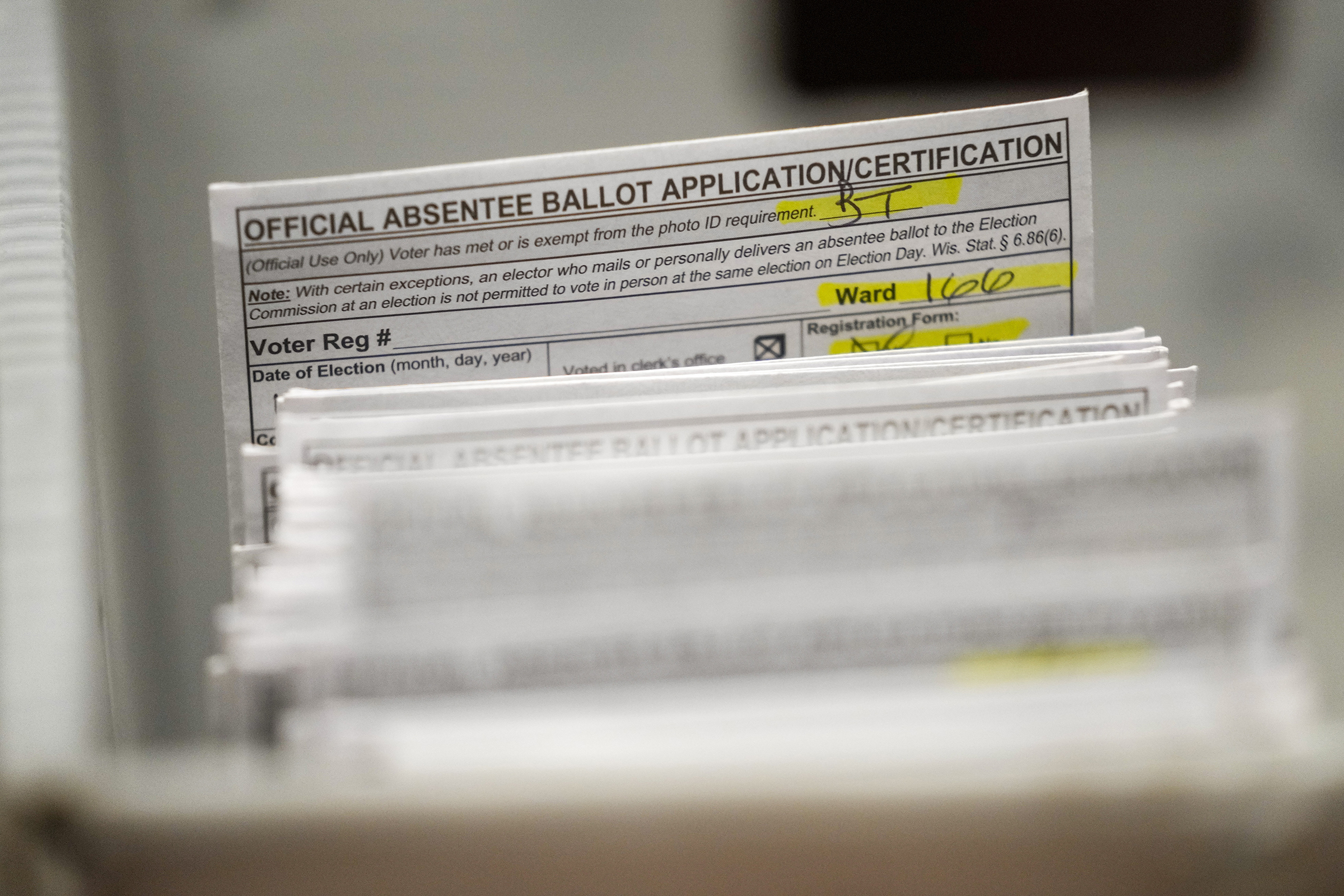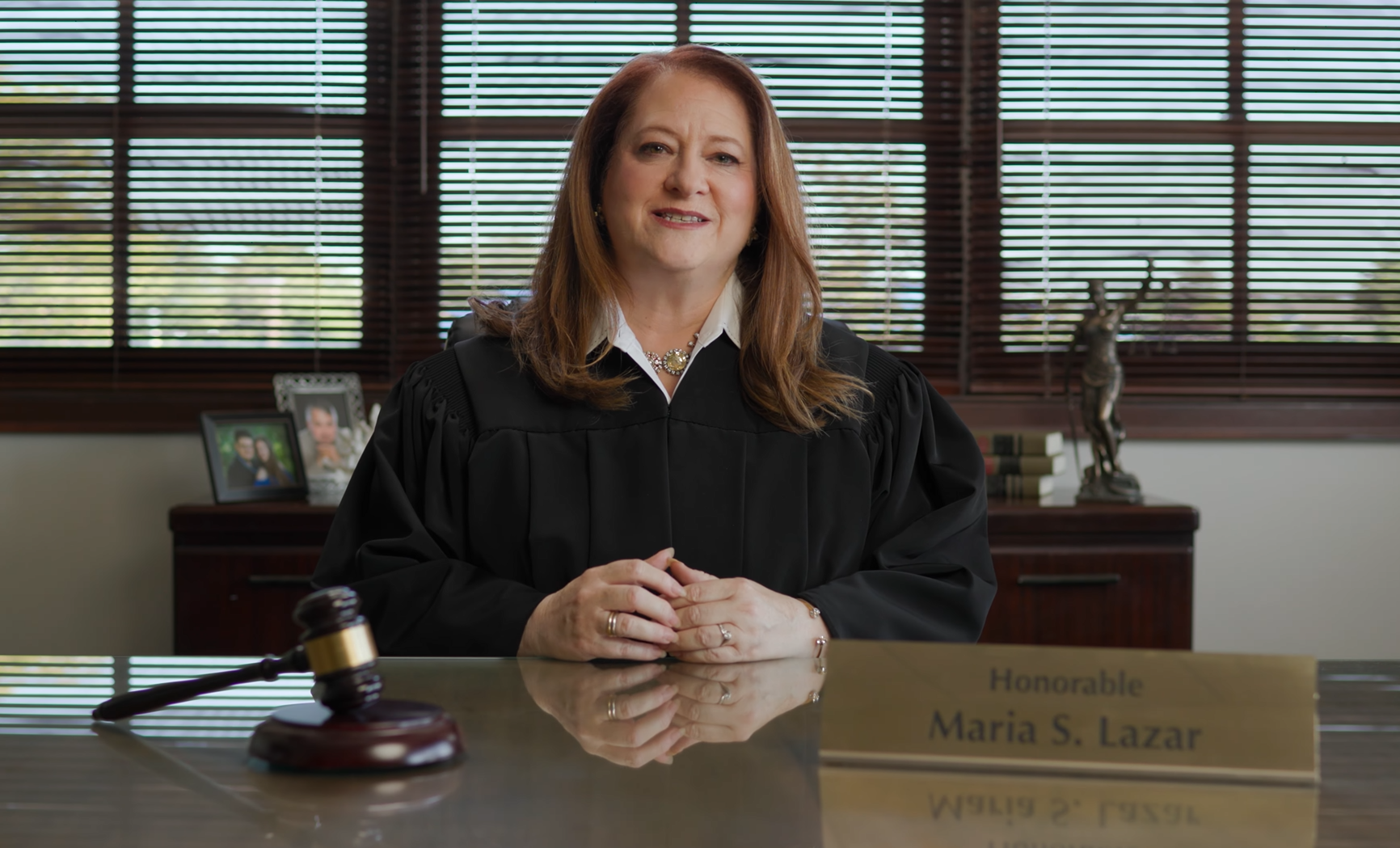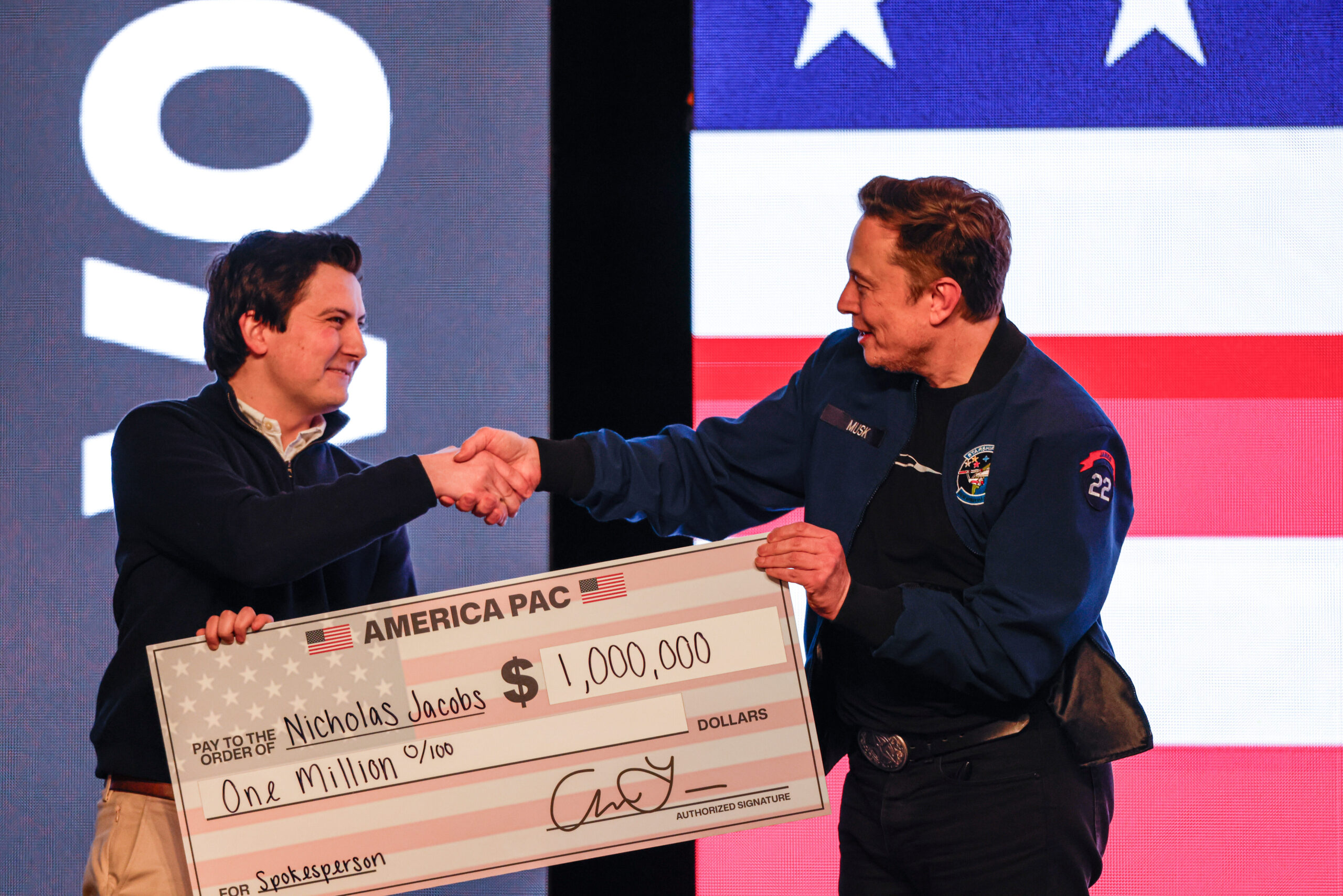A longshot candidate for president is asking the Wisconsin Supreme Court to find that the Democratic Party of Wisconsin abused its power by not putting him on the primary ballot this April, but attorneys for the state said Wednesday he waited too long to sue.
Minnesota U.S. Rep. Dean Phillips filed a petition with the Wisconsin Supreme Court Friday, asking justices to declare a state Presidential Preference Selection Committee run by the Republican Party of Wisconsin and the Democratic Party of Wisconsin ignored state law when it left his name off its list of candidates who would appear on the April ballot.
Phillips’ attorney argues Wisconsin law requires the preference committee to put “all candidates whose candidacy is generally advocated or recognized in the national news media” on primary ballots. The statute also says the committee “shall have sole discretion” to determine who qualifies under that guideline.
“Wisconsin voters subsidize the Wisconsin Democratic Party’s primary election, and they deserve a true primary, in which they are free to vote for the same nationally recognized candidates who are appearing on other states’ ballots,” Phillips’ petition said.
News with a little more humanity
WPR’s “Wisconsin Today” newsletter keeps you connected to the state you love without feeling overwhelmed. No paywall. No agenda. No corporate filter.
Candidates who don’t get the nod from the presidential preference committee can still get on primary ballots by collecting a total of at least 8,000 signatures from eligible voters living in the state’s eight congressional districts. However, the deadline for turning in those signatures has passed.
An affidavit filed with the court by Phillips’ senior campaign advisor said it was told gathering the signatures would cost “roughly $300,000.”
Phillips argues he “should not have to waste resources to circulate petitions and gather signatures when the Wisconsin legislature has determined that he and other ‘generally advocated or recognized’ candidates should be spared that expense.”
The court set an expedited timeline to consider the petition. On Wednesday, attorneys with the Wisconsin Department Justice, which is representing the Wisconsin Elections Commission in the case, urged justices not to take up Phillips’ complaint because he “sat on his rights and has arrived too late.”
The response from DOJ attorneys said state law creates a “compressed schedule” for certifying primary candidates and notifying local election clerks of which names to print on their ballots.
“While his campaign knew on January 2 that the Committee had not included him as a candidate, he neither commenced a signature and petition effort nor sought judicial recourse until three days before the Commission should provide the certified list of all qualified candidates to the county clerks—deadlines that enable municipal clerks to meet mandatory deadlines for distributing ballots to military and overseas voters,” the DOJ said.
On Tuesday, Democratic Gov. Tony Evers told reporters Phillips’ complaint is “ridiculous” and he thinks “the committee followed the process” correctly, calling the petition a distraction.
A spokesperson for the state Democratic party declined to comment for this story.
On Jan. 2, the state’s presidential preference committee approved seven candidates for the April primary ballot. The Republican Party forwarded six GOP presidential candidates, including Florida Gov. Ron DeSantis, Former U.N. Ambassador and South Carolina Gov. Nikki Haley and former President Donald Trump. President Joe Biden was the only candidate forwarded by the state Democratic Party.
The Republican party also declined to comment, but previously accused Democrats of “clearing the ballot of any candidate other than Joe Biden” and claimed “any alternative for Democrats would likely gain significant support and embarrass the President.”

Legal battles over ballot access aren’t new for Wisconsin
It’s not uncommon for candidates running for president to go to the courts when left off of ballots.
In 2020, Ye, the rapper formerly known as Kanye West, filed a lawsuit in Brown County Circuit Court arguing the Wisconsin Elections Commission violated his constitutional rights when it rejected his nominating petitions. The judge in that case ruled West’s campaign missed a deadline to file the papers.
That same year, Green Party presidential candidate Howie Hawkins submitted signatures with the Elections Commission in hopes of getting on primary ballots. But Democrats filed a petition to reject thousands of those signatures because the campaign listed the wrong address for Hawkins’ vice presidential candidate, Angela Walker, on some forms.
Hawkins later filed a petition with the state Supreme Court asking that he be placed on ballots for the 2020 general election. In a split decision, justices voted 4-3 to deny the request, with the court’s majority writing that Hawkins’ campaign had waited too long to file its lawsuit.
Wisconsin Public Radio, © Copyright 2025, Board of Regents of the University of Wisconsin System and Wisconsin Educational Communications Board.







